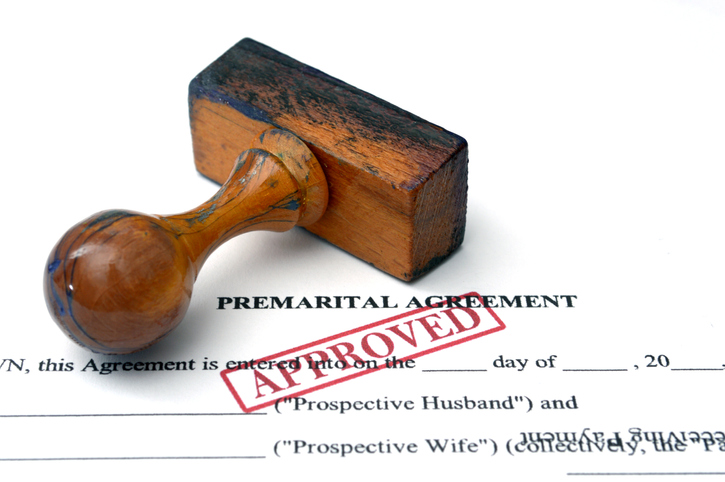 Texas family law has a strong presumption that it is in the child’s best interest to give custody to a parent. Generally, the court must appoint sole managing conservatorship to the parent instead of a non-parent unless it finds doing so would not be in the child’s best interest due to significant impairment of the child’s emotional development or physical health. Tex. Fam. Code § 153.131(a). What if the parent lives in another country? A Texas appeals court recently considered this issue.
Texas family law has a strong presumption that it is in the child’s best interest to give custody to a parent. Generally, the court must appoint sole managing conservatorship to the parent instead of a non-parent unless it finds doing so would not be in the child’s best interest due to significant impairment of the child’s emotional development or physical health. Tex. Fam. Code § 153.131(a). What if the parent lives in another country? A Texas appeals court recently considered this issue.
Cruel Treatment During Marriage Results in Disproportionate Division of Property
Fault in Divorce
 Divorces may be granted without fault, but Texas still allows divorce to be granted on fault-based grounds in certain situations. For example, a Texas divorce may be granted in one spouse’s favor if the other committed “cruel treatment” that makes the parties continuing to live together “insupportable.” Tex. Fam. Code Ann. § 6.002. Physical abuse can constitute cruel treatment, but physical abuse is not required for a Texas divorce court to find cruel treatment. When the court finds fault-based grounds for divorce, such as cruel treatment, the court may consider the fault in dividing the property. Specifically, the court can award a disproportionate share of the community estate to the spouse who is not at fault. A husband recently challenged such a disproportionate property division in his divorce.
Divorces may be granted without fault, but Texas still allows divorce to be granted on fault-based grounds in certain situations. For example, a Texas divorce may be granted in one spouse’s favor if the other committed “cruel treatment” that makes the parties continuing to live together “insupportable.” Tex. Fam. Code Ann. § 6.002. Physical abuse can constitute cruel treatment, but physical abuse is not required for a Texas divorce court to find cruel treatment. When the court finds fault-based grounds for divorce, such as cruel treatment, the court may consider the fault in dividing the property. Specifically, the court can award a disproportionate share of the community estate to the spouse who is not at fault. A husband recently challenged such a disproportionate property division in his divorce.
The wife said the husband stopped paying attention to her after his business partnership went sour. She also said he had called her names and accused her of cheating, in addition to being violent against her around four or five times.
The wife alleged that, during one incident, the husband had closed a door on her arm after he had filed for divorce. She called the police, and the husband agreed to leave. The husband, however, claimed that he had simply closed the door after the wife left the room, but she forced it back open. He claimed the door hit him, then whipped back toward her and hit her elbow. He said he agreed to leave for a few hours after the police arrived, but ultimately decided to leave permanently so their child would not see them argue.
Texas Father Entitled to Child Support Credit While Living with the Mother and Children

Many couples attempt to reconcile after breaking up or divorcing. Moving back in together can effect a parent’s obligation to provide child support. If the parent who is obligated to pay child support is contributing to the support of the household, he or she may be entitled to a credit for their child-support obligation. In a recent case, a mother challenged a court’s order giving the father a credit against back child support for the period of time when they had lived together with the children.
Texas Court Finds No Duress in Mediated Settlement Agreement
What is a Mediated Settlement Agreement?
A mediated settlement agreement (“MSA”) in a Texas divorce is binding if it meets certain requirements. It must state that it is not subject to revocation in bold letters, capital letters or underlined text. It must also be signed by each party and the party’s attorney, if present. Tex. Fam. Code Ann. § 6.602. Some Texas courts have held that an MSA may be unenforceable if it is obtained by fraud, duress or coercion.
A husband recently challenged an MSA, partly on the grounds that he allegedly signed it under duress.
The parties had been married since 1981. Some of the property acquired during the marriage was held by a limited partnership in which the parties owned a 95% interest. In August 2017, the husband was arrested after the wife reported he had threatened her with a firearm. The wife filed for divorce the very next day.
Texas Court Finds No Common Law Marriage Existed Despite Representations the Parties Were Married

Texas, unlike many states, still recognizes common law marriage (also known as an “informal” marriage). Unlike with formal marriages, a common law spouse often has to prove that the marriage even existed before getting a divorce. A party may prove that an informal marriage exists by showing that the parties agreed to be married, then lived together as spouses in Texas, and represented themselves to others as married. TEX. FAM. CODE ANN. § 2.401(a)(2).
In a recent case, a woman challenged a determination that she and her former romantic partner had not established the existence of an informal marriage. After they broke up, the man filed for a declaratory judgment that there was no informal marriage, but the woman counter-petitioned for divorce, alleging that they were informally married. The woman argued they had an informal marriage starting in August 2014, but the man argued they had only been “boyfriend/girlfriend” or domestic partners.
Texas Court May Order Primary Custodial Parent to Pay Child Support

A court may order one joint managing conservator to pay Texas child support to another joint managing conservator. Tex. Fam. Code Ann. § 153.138. The child’s best interest is the primary consideration in determining child support. There may, therefore, be occasions where a court orders the parent with primary physical custody to nonetheless pay child support to the other parent, when they are both joint managing conservators. A mother recently challenged an order to pay child support when she had been awarded the exclusive right to determine the child’s primary residence.
Texas Court Awarded Guardianship to Aunt Instead of Grandmother
T exas custody disputes usually involve the children’s parents. When both parents unexpectedly pass away, however, their families may fight over who gets guardianship of the children. Generally, if the parents did not designate a guardian, a grandparent would be awarded guardianship. If multiple grandparents seek guardianship, then the court will appoint one of them, considering the circumstances and child’s best interest. If no grandparent seeks guardianship, then the court will appoint the next of kin, considering the circumstances and the child’s best interests if there are multiple people with the same degree of kinship. Tex. Est. Code Ann. § 1104.052. A minor who is at least 12 years old may be able to select a guardian, if the court finds the selection is in the child’s best interest and approves. Tex. Est. Code Ann. § 1104.054.
exas custody disputes usually involve the children’s parents. When both parents unexpectedly pass away, however, their families may fight over who gets guardianship of the children. Generally, if the parents did not designate a guardian, a grandparent would be awarded guardianship. If multiple grandparents seek guardianship, then the court will appoint one of them, considering the circumstances and child’s best interest. If no grandparent seeks guardianship, then the court will appoint the next of kin, considering the circumstances and the child’s best interests if there are multiple people with the same degree of kinship. Tex. Est. Code Ann. § 1104.052. A minor who is at least 12 years old may be able to select a guardian, if the court finds the selection is in the child’s best interest and approves. Tex. Est. Code Ann. § 1104.054.
Mexican Premarital Agreement Found Valid and Enforceable in Texas

With such close geographic proximity, the legal issues that arise in a Texas divorce case occasionally transcend our border with Mexico. In a recent opinion, one Texas court explored the intersection between the laws of Mexico and Texas and whether a Mexican premarital agreement is valid and enforceable in Texas. Continue Reading ›
Texas Court of Appeals Denies Writ to Vacate Order Compelling Therapy
In an ideal situation, child custody may be resolved by agreement, potentially following mediation. In some cases, however, Texas child custody cases become long protracted affairs with disputes that last for years.
Who Gets the Family Pet in a Divorce?

With an increasing number of couples having children in their 30s, or skipping having children altogether, pets are taking on a whole new role for many Texas couples: a temporary stand-in for children and sometimes even a permanent replacement. As a result, more Texas couples consider their pets to be members of the family now than ever before. Pets now accompany us to restaurants, sleep on memory-foam mattresses, and even have their own social-media accounts. However, when it comes to divorce, many Texas couples are understandably unsure what might happen to their “fur baby.” Will their pet be awarded to their soon-to-be ex-spouse, never to be seen by them again? Will the Court order shared possession of their pet, like it would a child? Is it possible to get court-ordered FaceTime sessions with a miniature poodle?
Pet Custody in Texas Divorce
While a few states, such as California, Alaska, and Illinois, have given legal recognition to the unique role that pets play within the family, Texas law still considers pets to be personal property in the divorce context. As a result, Texas divorce courts are unlikely to order shared possession of a pet like they would a child. In this regard, Texas divorce law creates a zero-sum game: either you are awarded the family pet or your spouse is. With this in mind, it is important to inform the Court to whom the family pet should be awarded and why.
 Texas Divorce Attorney Blog
Texas Divorce Attorney Blog


































